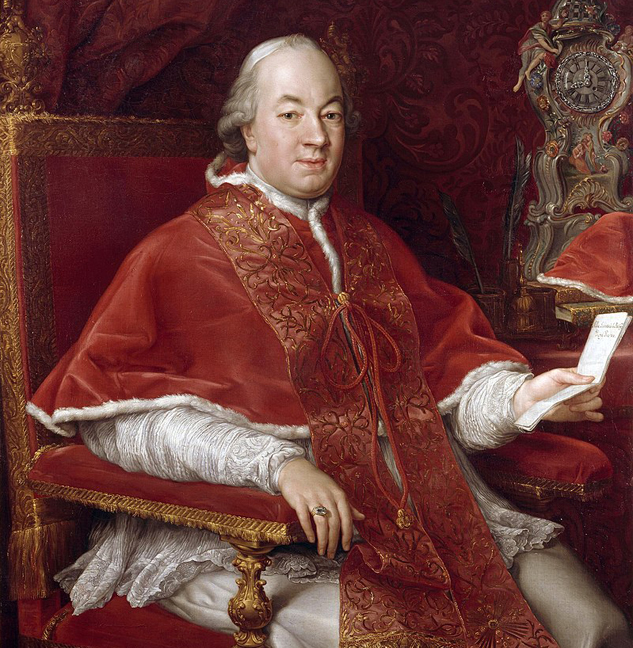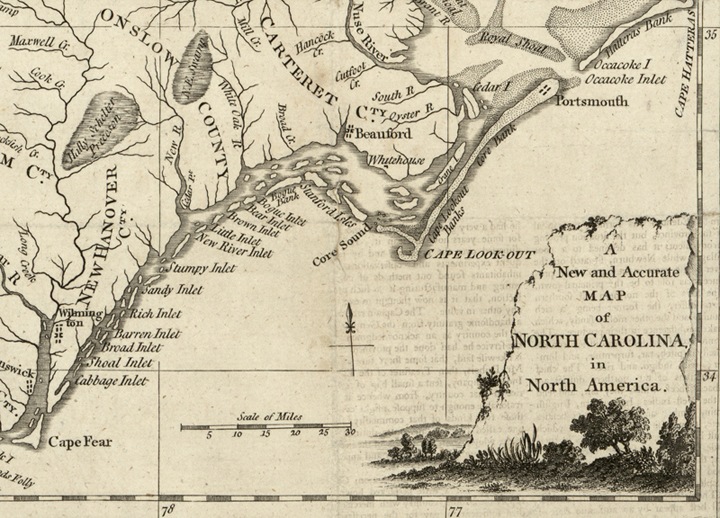Scholars generally view that the Framers of the United States Constitution “recalled the historical tyrannies of Great Britain and France in establishing the prohibitions against ex post facto laws (laws having retroactive effect) and bills of attainder (forfeiture of property and civil rights without due process).”[1] In reality, things are more complicated than this simple storyline: those prohibitions were not merely targeting the “historical tyrannies of Great Britain,” but also aiming at legal abuses that happened domestically around the revolutionary period. Edward C. Carter points out that the ban of ex post facto laws in the Constitution stems from “the excesses of the American colonial rulers, who used retroactive legislation as a means of political warfare and retribution.”[2] According to Calvin Massey, in late 1770s and early 1780s, under the framework of the Articles of Confederation, “State legislatures abused their power by enacting ex post facto laws.”[3] As for bills of attainder, scholars such as Frank O. Bowman III and Jay Wexler write that, originally, Bills of attainder “were not a feature of colonial America,” but after independence, multiple state governments did enact bills of attainder “against unrepentant royalists”;[4] quite remarkably, “in 1776 Pennsylvania passed almost five hundred bills of attainder against Tories accused of treason,” and similar things happened in New York and Virginia in late 1770s.[5] These triggered lots of backlash, so the framers of the US Constitution chose to ban bills of attainder and ex post facto laws. The model for this was the 1776 Maryland Declaration of Rights, a pioneering “against the crowd” type of special document, genuinely remarkable for its time.
The intellectual origin of US Constitution Article 1, Section 9, Clause 3 was largely based on the 1776 Maryland Declaration of Rights. The US Constitution clause reads, “No Bill of Attainder or ex post facto Law shall be passed.” Article 17 and 18 of the 1776 Maryland Declaration of Rights[6] reads,
Art. 17. That retrospective Laws, punishing acts committed before the existence of such Laws, and by them only declared criminal are oppressive, unjust and incompatible with liberty; wherefore, no ex post facto Law ought to be made; nor any retrospective oath or restriction be imposed, or required. Art. 18. That no Law to attaint particular persons of treason or felony, ought to be made in any case, or at any time, hereafter.[7]
Not only is the textual similarity clear, the intellectual connection is also fully traceable.
In James Madison’s “Notes on the Debates in the Federal Convention” Tuesday August 22, 1787 entry,[8] we have, “Mr. GERRY & Mr. Mc.HENRY moved to insert after the 2d. sect. Art: 7, the Clause following, to wit, ‘The Legislature shall pass no bill of attainder nor any ex post facto law.’” Here, McHenry is James McHenry, a member of the Maryland delegation. In the same entry, we also have,
Mr. ELSEWORTH contended that there was no lawyer, no civilian who would not say that ex post facto laws were void of themselves. It can not then be necessary to prohibit them. Mr. WILSON was against inserting any thing in the Constitution as to ex post facto laws. It will bring reflexions on the Constitution—and proclaim that we are ignorant of the first principles of Legislation, or are constituting a Government which will be so . . . Mr. CARROL remarked that experience overruled all other calculations. It had proved that in whatever light they might be viewed by civilians or others, the State Legislatures had passed them, and they had taken effect. Mr. WILSON. If these prohibitions in the State Constitutions have no effect, it will be useless to insert them in this Constitution.”
Mr. CARROL is Daniel Carroll, also a member of the Maryland delegation. In the voting record of this motion, the state of Maryland voted yes. The September 17, 1787 version of Draft of the Constitution included the clause: “No bill of attainder shall be passed, nor any ex post facto law.”[9]
Not only McHenry and Carrol, as members of the Maryland delegation, fought to promote this clause, one other Maryland writer also spoke in obvious favor of it. Alexander Contee Hanson (Aristides), in his “Remarks on the Proposed Plan of a Federal Government” (1788), gave this argument: “What at this moment to the nations abroad is the state of Maryland? . . . What . . . are the powers an individual state will lose? . . . She shall pass no bill of attainder, or ex post facto law, or law impairing the obligation of a contract”[10] and “the restraints laid on the state legislatures will tend to secure domestic tranquility, more than all the bills, or declarations, of rights, which human policy could devise. It is very justly asserted, that the plan contains an avowal of many rights. It provides that no man, shall suffer by expost facto laws or bills of attainder.”[11]
Hanson himself was a Maryland attorney. According to the literature, Hanson, Carrol and McHenry were in the same Maryland federalist group promoting their platform.[12] When it comes to the state ratification of the federal constitution, we see that “the opposition to the Constitution, because it lessened the power of the State, was so strong as to be nearly fatal to the new Constitution; but . . . McHenry, Hanson, . . . Daniel Carroll. . . and other distinguished men in the State of Maryland secured its adoption”[13]
It was the influence of the State of Maryland, with its bold declaration of rights in 1776, that led to the national adoption of a small but important part of the United States Constitution. Supreme Court Justice Felix Frankfurter once pointed out that “frequently a bill of attainder was . . . doubly objectionable because of its ex post facto features. This is the historic explanation for uniting the two mischiefs in one clause ‘No Bill of Attainder or ex post facto Law shall be passed.’”[14] Justice Frankfurter is probably right, and as we have seen, these two mischiefs were mentioned in the same place a decade before the Constitution, in the 1776 Maryland Declaration of Rights.
[1]M. Cherif Bassiouni, Crimes against Humanity: Historical Evolution and Contemporary Application (Cambridge, UK: Cambridge University Press, 2011), 296-297.
[2]Edward C. Carter, Criminal Law and Procedure for the Paralegal (New York: Wolters Kluwer Law & Business, 2019), 114.
[3]Calvin Massey, American Constitutional Law: Powers and Liberties (New York: Wolters Kluwer, 2016).
[4]Frank O. Bowman III, High Crimes and Misdemeanors (Cambridge, UK: Cambridge University Press, 2019), 29-30.
[5]Jay Wexler, The Odd Clauses: Understanding the Constitution Through Ten of Its Most Curious Provisions (Boston: Beacon Press, 2011).
[6]North Carolina DECLARATION OF RIGHTS – 1776 also says “no ex post facto law ought to be made,” but says nothing about attainder. See avalon.law.yale.edu/18th_century/nc07.asp. According to Madison’s notes, the North Carolina delegation casted a divided vote. The Massachusetts Constitution of 1780 stipulated that “Laws made to punish for actions done before the existence of such laws, and which have not been declared crimes by preceding laws, are unjust, oppressive, and inconsistent with the fundamental principles of a free government,” but it does not use the term “ex post facto.” See malegislature.gov/laws/constitution pertaining to this; see also United States Reports: Cases Adjudged in the Supreme Court, Vol. 497 (U.S. Government Printing Office, 1994), 43.
[7]msa.maryland.gov/msa/mdmanual/43const/html/00dec.html The 1777 Constitution of New York also mentioned that “no acts of attainder shall be passed by the legislature of this State for crimes, other than those committed before the termination of the present war; and that such acts shall not work a corruption of blood.” But it did not mention the “ex post facto” aspect, and its delegation did not vote on this specific issue. See avalon.law.yale.edu/18th_century/ny01.asp and Sydney George Fisher, The Evolution of the Constitution of the United States: Showing that it is a Development of Progressive History and Not an Isolated Document Struck Off at a Given Time Or an Imitation of English Or Dutch Forms of Government (Philadelphia: J.B. Lippincott, 1900), 210-211.
[8]avalon.law.yale.edu/18th_century/debates_822.asp
[9]See The Papers of Alexander Hamilton, vol. 4, January 1787 – May 1788, ed. Harold C. Syrett (New York: Columbia University Press, 1962), 253–274.
[10]oll.libertyfund.org/title/ramsay-pamphlets-on-the-constitution-of-the-united-states-1787-1788.
[11]press-pubs.uchicago.edu/founders/documents/v1ch14s34.html.
[12]Bernard Christian Steiner, The Life and Correspondence of James McHenry (Cleveland: Burrows Brothers Company, 1907 ), 107-108; see also Records of the American Catholic Historical Society of Philadelphia, Vol. 51-52 (Philadelphia: American Catholic Historical Society of Philadelphia, 1940), 139; John Thomas Scharf, History of Maryland from the Earliest Period to the Present Day: 1765-1812(Baltimore, J. B. Piet, 1879), 547.
[13]The American Monthly Magazine, Vol. 14 (R.R. Bowker Company, 1899 ), 345; see also Allan Nevins, The American States During and After the Revolution, 1775-1789 (New York: Macmillan, 1924), 318-319.










2 Comments
I never would have attributed or made the connection to a Constitutional provision against laws of attainder to the prosecution of Tories. An interesting and brief article on an important topic.
Excellent article! I was not aware the Maryland Declaration of Rights of 1776 was an important basis for prohibitions against ex post facto laws. As a Marylander it makes me prouder of my colony!